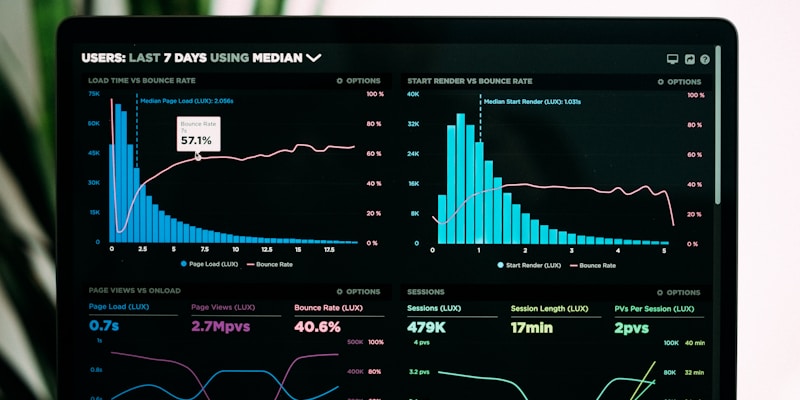Building Secure Fintech Applications: A Complete Guide
The fintech industry is rapidly evolving, with new technologies and regulations constantly emerging. Building secure, compliant, and scalable financial applications requires careful planning and implementation of industry best practices.
Understanding Fintech Security Requirements
Core Security Principles
1. Data Encryption
- End-to-end encryption for all financial data
- Strong encryption algorithms (AES-256)
- Secure key management systems
- Regular encryption key rotation
2. Authentication & Authorization
- Multi-factor authentication (MFA)
- Role-based access control (RBAC)
- Biometric authentication integration
- Session management and timeout policies
3. Compliance Standards
- PCI DSS for payment processing
- GDPR for data privacy
- SOX compliance for financial reporting
- Local financial regulations
Payment Integration Best Practices
Choosing the Right Payment Gateway
Stripe Integration
// Secure payment processing
const paymentIntent = await stripe.paymentIntents.create({
amount: 2000,
currency: 'usd',
metadata: {
order_id: 'order_123',
customer_id: 'cust_456'
}
});
Razorpay for Indian Markets
// Multi-gateway support
const razorpay = new Razorpay({
key_id: process.env.RAZORPAY_KEY_ID,
key_secret: process.env.RAZORPAY_KEY_SECRET
});
Security Implementation
1. Tokenization
- Replace sensitive data with tokens
- Store tokens securely
- Implement token lifecycle management
2. Fraud Detection
- Real-time transaction monitoring
- Machine learning-based fraud detection
- Risk scoring algorithms
- Automated fraud prevention
Real-time Trading Platforms
WebSocket Implementation
Real-time Data Streaming
// WebSocket connection for live data
const ws = new WebSocket('wss://api.tradingplatform.com/ws');
ws.onmessage = function(event) {
const data = JSON.parse(event.data);
updateMarketData(data);
};
Key Features
1. Market Data Processing
- Real-time price feeds
- Order book management
- Trade execution
- Portfolio tracking
2. Risk Management
- Position limits
- Stop-loss orders
- Margin calculations
- Real-time P&L tracking
Digital Wallet Development
Core Functionality
1. Wallet Operations
- Balance management
- Transaction history
- Multi-currency support
- Offline transaction capability
2. Security Features
- PIN/biometric protection
- Transaction limits
- Suspicious activity detection
- Secure backup and recovery
Implementation Example
// Wallet transaction processing
class WalletService {
async processTransaction(transaction) {
// Validate transaction
await this.validateTransaction(transaction);
// Check balance
const balance = await this.getBalance(transaction.userId);
if (balance < transaction.amount) {
throw new Error('Insufficient funds');
}
// Process payment
const result = await this.executePayment(transaction);
// Update wallet balance
await this.updateBalance(transaction.userId, result.newBalance);
return result;
}
}
Compliance and Regulatory Considerations
PCI DSS Compliance
Requirements:
- Secure network and systems
- Protect cardholder data
- Maintain vulnerability management program
- Implement strong access control measures
- Regularly monitor and test networks
- Maintain information security policy
Data Privacy (GDPR)
Key Requirements:
- Data minimization
- Consent management
- Right to be forgotten
- Data portability
- Privacy by design
Testing and Quality Assurance
Security Testing
1. Penetration Testing
- Regular security assessments
- Vulnerability scanning
- Code security reviews
- Third-party security audits
2. Load Testing
- High-volume transaction testing
- Stress testing under peak loads
- Performance monitoring
- Scalability validation
Compliance Testing
1. Regulatory Testing
- Compliance validation
- Audit trail verification
- Reporting accuracy testing
- Data integrity checks
Deployment and Monitoring
Production Deployment
1. Infrastructure Security
- Secure cloud hosting
- Network segmentation
- Firewall configuration
- DDoS protection
2. Monitoring and Alerting
- Real-time transaction monitoring
- Security event logging
- Performance metrics
- Automated alerting
Maintenance and Updates
1. Regular Updates
- Security patch management
- Feature updates
- Performance optimizations
- Compliance updates
2. Backup and Recovery
- Automated backups
- Disaster recovery planning
- Business continuity
- Data recovery procedures
Future Trends in Fintech
Emerging Technologies
1. Blockchain Integration
- Smart contracts
- Decentralized finance (DeFi)
- Cryptocurrency integration
- Cross-border payments
2. AI and Machine Learning
- Fraud detection algorithms
- Credit scoring models
- Personalized financial advice
- Automated trading systems
3. Open Banking
- API-first architecture
- Third-party integrations
- Real-time data sharing
- Enhanced user experiences
Best Practices Summary
Development Phase
- Implement security from the start
- Use established frameworks and libraries
- Follow coding standards and best practices
- Regular code reviews and testing
Production Phase
- Continuous monitoring and logging
- Regular security updates
- Performance optimization
- User feedback integration
Compliance Phase
- Regular compliance audits
- Documentation maintenance
- Staff training and awareness
- Incident response planning
---
About the Author: Swalih leads our AI and fintech development initiatives at DevOpte, specializing in secure payment systems, trading platforms, and financial technology solutions. With deep expertise in blockchain, AI integration, and compliance standards, Swalih helps businesses build robust and secure fintech applications.





